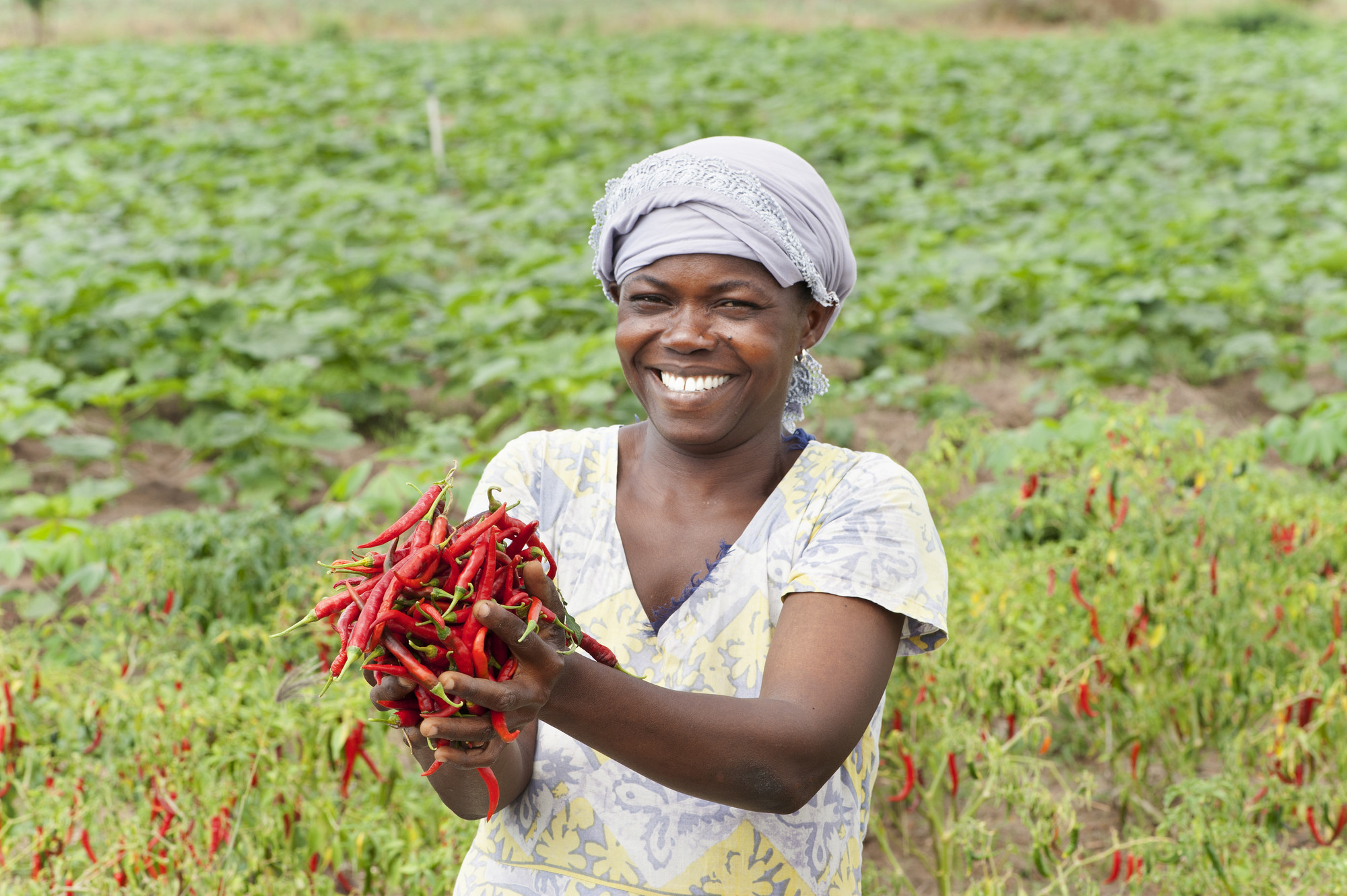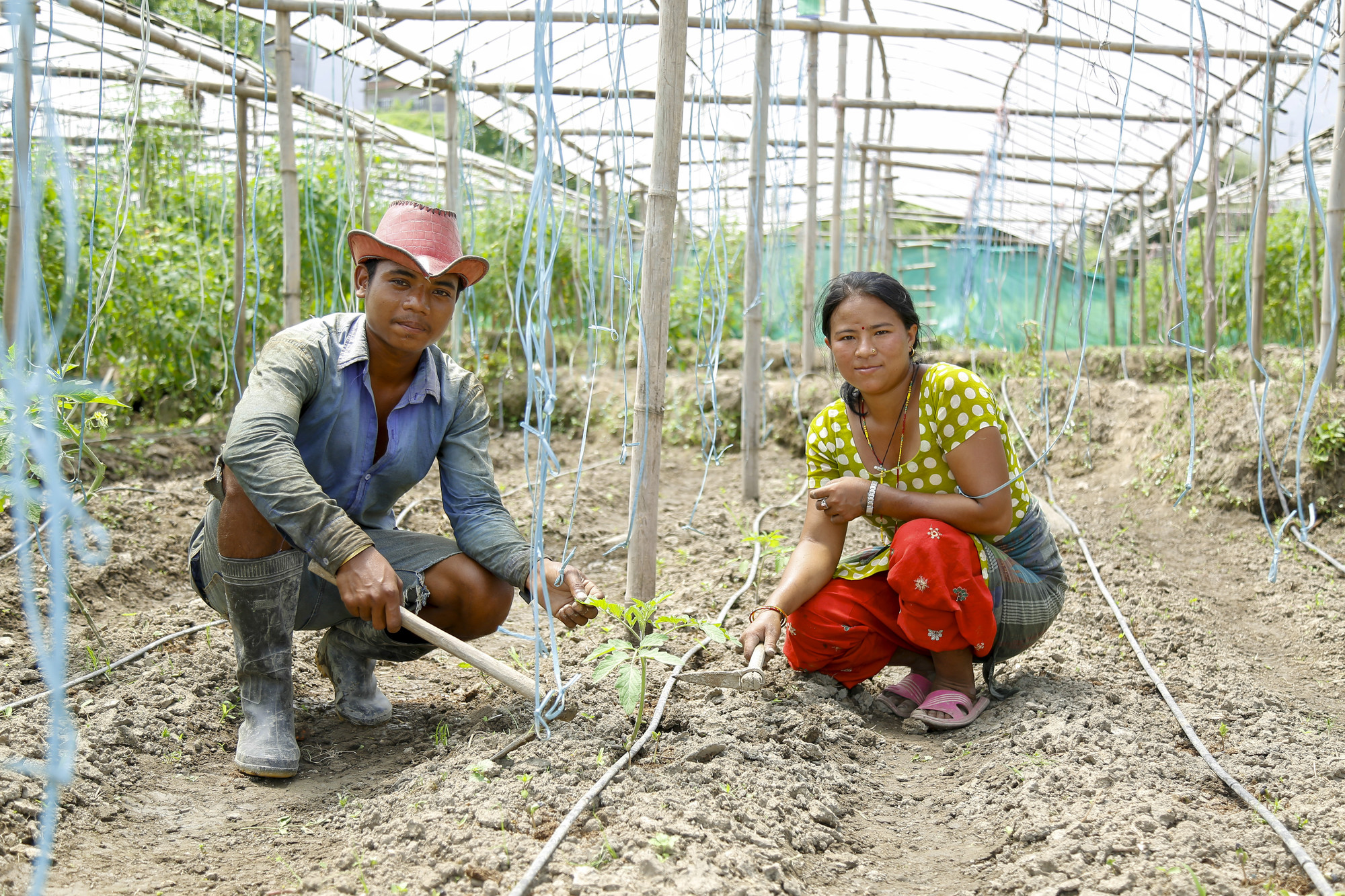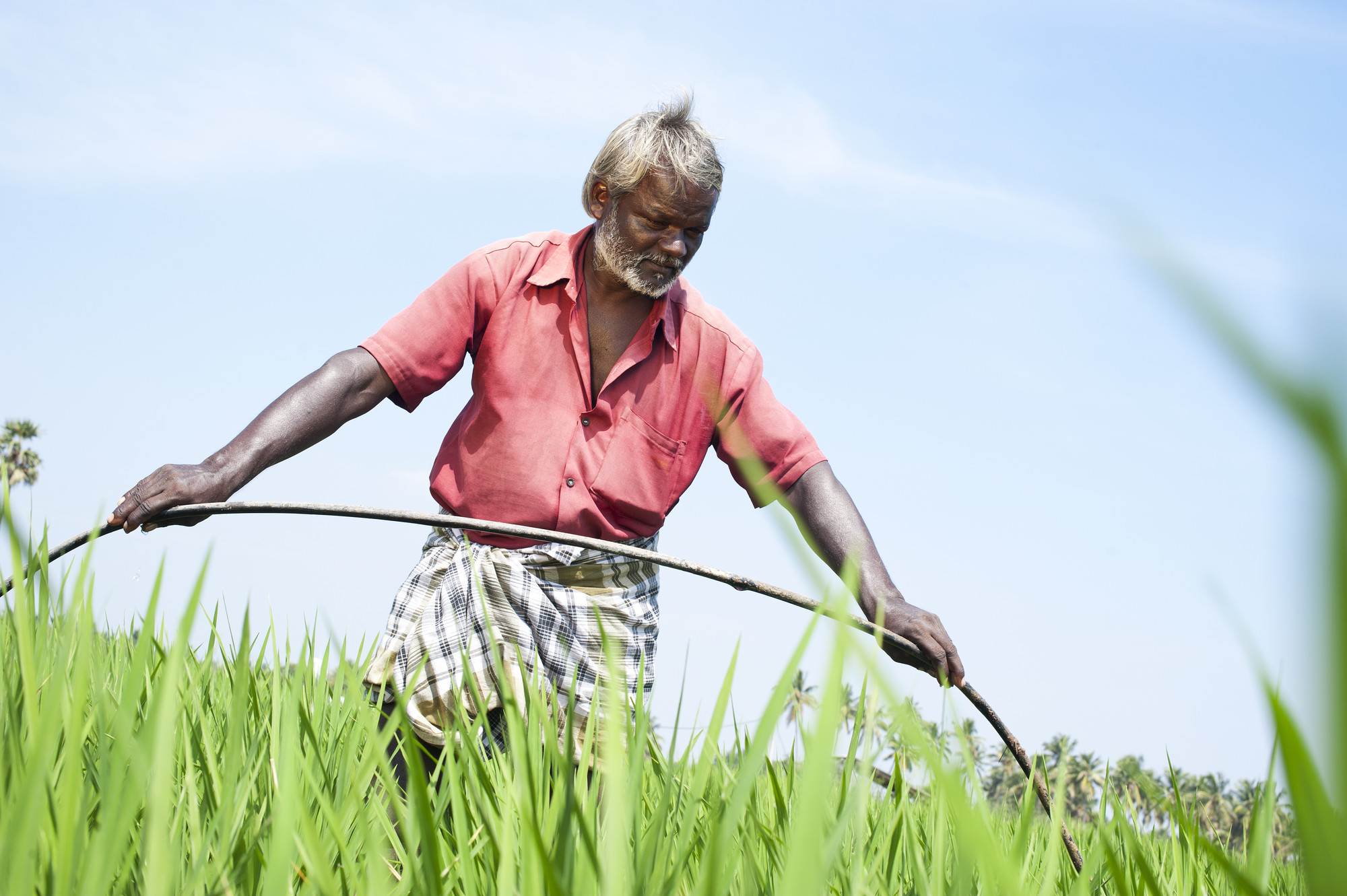Gender equality, youth and social inclusion
IWMI’s research on gender and water, over many decades, in Asia, Africa and the Middle East shows that real progress cannot be achieved if water investments, innovations and interventions do not respond to the complexities of inequality and exclusion, including the rapid nature of food, water, climate and social system transformations.
How the REACH-STR project is giving women and youth more agency
In Ghana, IWMI leads the Resilience Against Climate Change – Social Transformation Research and Policy Advocacy (REACH-STR) project, funded by the European Union. The project strives to ensure equality for women and youth in rural communities in the Upper West Region of Ghana, a dry savanna just south of the Sahel.
 Work carried out by the REACH-STR project in the region is focused on understanding shifting gender roles surrounding the impact of youth migration, and also exploring how women and men react to stressors, such as the Covid-19 pandemic, increased out-migration and climate change. During the pandemic, for example, and as a result of youth migration, women have adapted by taking on additional farming responsibilities. As part of the project, IWMI researchers are working on developing evidence-based policy recommendations and programming to explore how to manage these challenges.
Work carried out by the REACH-STR project in the region is focused on understanding shifting gender roles surrounding the impact of youth migration, and also exploring how women and men react to stressors, such as the Covid-19 pandemic, increased out-migration and climate change. During the pandemic, for example, and as a result of youth migration, women have adapted by taking on additional farming responsibilities. As part of the project, IWMI researchers are working on developing evidence-based policy recommendations and programming to explore how to manage these challenges.
Through the project, IWMI has conducted learning workshops with district and regional government officials from the Upper West Region. The project is currently collecting baseline data from around 2,000 farming households to better understand their situation. Later workshops with farmers form part of a participatory process, ensuring community buy-in.
It is hoped that the workshops and eventual policy programming planned by the REACH-STR project will lead to more reliable water supplies and enable agriculture to thrive in the dry season. One of the goals of the project is to support the region in growing high-value vegetables, which could make dry-season farming lucrative. This could benefit women, in particular, by providing another source of income.
Shaping water policy for better inclusion of women in Nepal
Disparities in water access are mediated by inequalities in gender, class and caste and other contextual factors. The project A Gender Perspective to Understand and Enhance the Functionality of Water Supply Systems (GP4WSF), supported by the Water for Women Fund, aims to make water supply systems more functional through better inclusion practices in Nepal. The GP4WSF project is led by IWMI in close collaboration with the Netherlands Development Organization (SNV). The Water for Women Fund is funded by the Australian Department of Foreign Affairs and Trade (DFAT).
 As part of this work, IWMI conducted a study in 2020 to explore how intersectional gender factors affect collective action in the management of water, sanitation and hygiene (WASH) services in two districts in Nepal.
As part of this work, IWMI conducted a study in 2020 to explore how intersectional gender factors affect collective action in the management of water, sanitation and hygiene (WASH) services in two districts in Nepal.
A survey of over 600 households across the two districts showed that only 25% of piped water supply systems are fully functional, and the performance and functionality of Water Users Committees (WUCs) was generally poor. Of seven such WUCs responsible for managing local WASH services and infrastructure, only one was properly functioning.
When water supply systems do not work, women and marginalized communities are often the first to be impacted. IWMI researchers collaborated with SNV-supported local partners in developing capacity and designing strategies to improve both the functionality of the WUCs and the role of women in these committees. In situations of high rates of out-migration of men and youth, many women struggle with multiple roles, and being a member of a WUC and managing water services at the same time is often not possible because household tasks and agricultural responsibilities take precedence.
IWMI research shows that emphasizing women’s participation in WUCs can result in additional work, but they might struggle to refuse the opportunity to participate. Fortunately, younger women tend to be more outspoken and are better able to decide if, why and how to participate in WUCs. IWMI’s research shows that the links between women’s engagement in community-based water institutions and their empowerment are far from simplistic. These are issues that need to be considered if the goal is meaningful participation of women and their improved well-being.
Giving cash-strapped farmers an opportunity
Solar-powered irrigation has been implemented in many countries to enable smallholder farmers to increase the productivity of their land. Its potential for improving food security and social inclusion has been harnessed by smart financing solutions developed by IWMI and partner organizations. This has opened up new opportunities for smallholder farmers, including women, youth and marginalized farmers, who would otherwise not have access to these technologies. Women, in particular, are more likely to face difficulties accessing resources such as land, credit and information that would enable them to invest in irrigation.
 As solar-powered pumps become more accessible, access to water for irrigation improves across Central Asia, South Asia, West Africa, sub-Saharan Africa and East Africa, promoting food and water security, as well as farmer-led and farmer-managed irrigation.
As solar-powered pumps become more accessible, access to water for irrigation improves across Central Asia, South Asia, West Africa, sub-Saharan Africa and East Africa, promoting food and water security, as well as farmer-led and farmer-managed irrigation.
However, solar technologies require large upfront investments, which not all smallholder farmers can afford. Financing and credit schemes are not structured to service more marginalized farmers such as women, who are particularly vulnerable to water insecurity. Because of their financial vulnerability, it is more difficult for rural smallholders to get loans from lenders, who prefer to focus on traditionally less ‘risky’ clients.
Searching for solutions, stakeholders from the irrigation sector in Ghana and Ethiopia met virtually to discuss options for improving the availability and effectiveness of financing solutions for farmers, who are increasingly driving investments in irrigation. These meetings were convened by IWMI under the Feed the Future Innovation Lab for Small-Scale Irrigation (ILSSI) project funded by the United States Agency for International Development (USAID). It brought together relevant actors, globally and nationally, to innovate farmer-led irrigation (FLI) development.
The aim of the virtual sessions was to start debates on farmer-led irrigation between researchers and practitioners who then identified new courses of action.
The meetings resulted in suppliers looking into how they could fill the gap in financing solutions. One supplier, PEG Africa, was founded in 2015 to deliver affordable energy to the 150 million people in West Africa who do not have access to electricity. They are contributing to the discourse by presenting a pay-as-you-go financing model in West Africa that enables customers to pay regular installments and eventually fully own solar home systems. This will help to ensure that more people benefit from the project, e.g., cash-strapped, marginalized and resource-poor farmers, including women.
